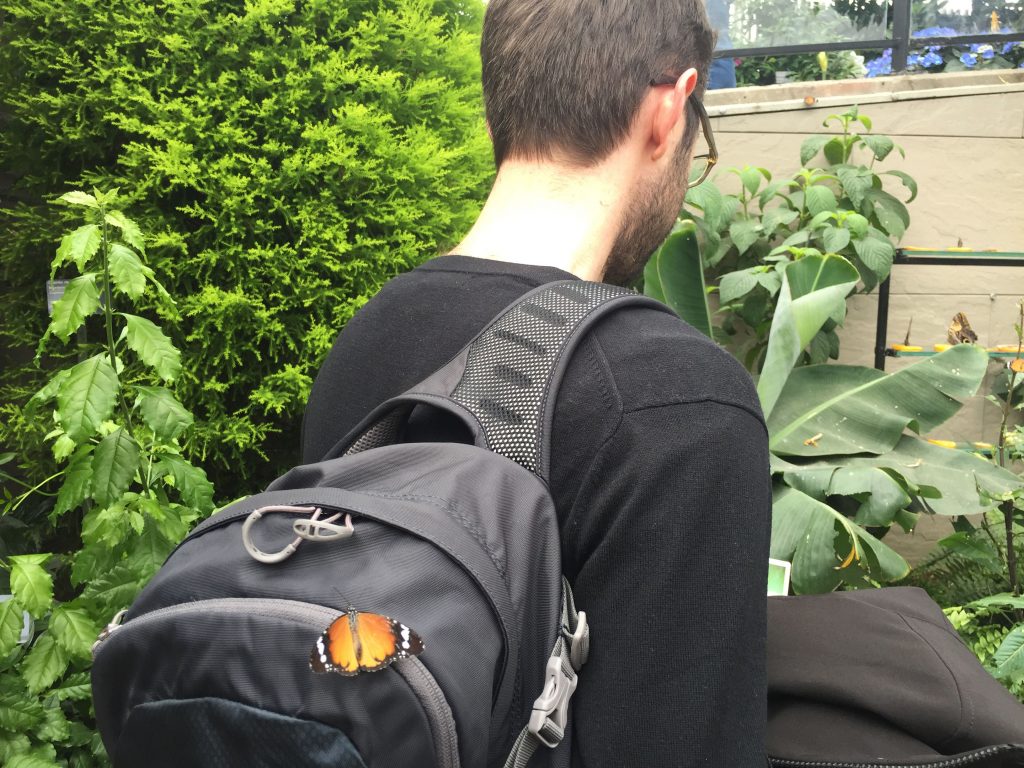This post may contain affiliate links, meaning that if you click and make a purchase, I may earn a commission at no additional cost to you. Read the full disclosure here.
Last Updated: October 26, 2024
Traveling solo can be an incredibly rewarding experience although it can also be very daunting, especially the first time. We’ve been told the world is a scary place and unsafe to venture out into alone. As a solo traveler, you do have to rely heavily on yourself but that doesn’t mean you have to be afraid. Here are some helpful tips and advice on what to keep in mind and how to stay safe on your next solo adventure, especially as a female traveler.

1. Share Your Itinerary With Someone
Create a detailed itinerary with travel times and trip details. Aside from dates and times, list flight numbers, train numbers, pertinent phone numbers and addresses for accommodations, etc. Include your contact information and copies of important documents, such as your passport.
All of this information should be accessible to someone you trust or even multiple people. If you make any changes to your itinerary over the course of your trip, send updates so that someone will know the best way to locate and contact you.
2. Keep Your Location Private on Social Media
Avoid oversharing by announcing your exact location in the moment. You’ll probably have tons of pictures and videos to post of your trip, but if you have a public profile on social media, anyone can see where you are. It doesn’t matter how many followers you have, all it takes is one creep! (Take it from someone who’s already had a stalker incident 😱)
Personally, my Instagram is anything but Insta these days! I rarely share spots until after I’ve left, unless I’m under contract to share in the moment for my work as a professional blogger.
3. Establish a Routine Check-In
Send a text message or have a phone call around the same time every day with a friend or family member back home. Set a reminder for yourself so you don’t forget! Make sure that this person has all your contact information as well as emergency numbers for the country where you are staying. If they are unable to reach you within a certain time frame, they should be prepared to take appropriate action.
When out of the country, WhatsApp can be a good option for sending messages and making phone calls. Instead of a traditional phone call that is transmitted over cell service, WhatsApp works on data. Therefore, it does not count as a long-distance, international phone call. Likewise, if you and the person you are contacting have iPhones, you can send iMessages and make Facetime calls over Wifi or data.
4. Keep Your Devices Connected & Charged
Do the research ahead of time to compare your options for phone service while abroad. Generally, you can choose between purchasing a local SIM card for use in the country of destination or activating an international plan with your current cell phone provider. The latter is typically more expensive and the service can be spotty.
📱 For the most reliable connectivity, I recommend a local SIM, as long as your phone is “unlocked.” For a data-only eSIM at a great price, check out Airalo. If you need a SIM card with calls, texts, and a local phone number for your trip to France or Europe, check out the Orange Holiday card. Read my full review here.
Of course, a SIM card won’t do you any good if your phone runs out of battery. While traveling, you’re bound to drain the battery faster than usual as you’ll be using your phone for navigation and to capture photos and videos. I carry a powerful portable charger with me on all trips and sometimes even in my hometown when I know I’ll be out all day. You can’t count on finding an outlet when you need one!
5. Save Documents & Maps for Offline Use
Save important documents as PDFs on your phone for easy access just in case your cell phone service is spotty. I routinely save transportation tickets, accommodation information, and Covid requirements in the iPhone Notes app. You can save several PDFs to one note or save each one to individual notes.
With a little of planning, you can use Google maps even without internet access. Download a map for an entire city or a specific area for later use. The directions for saving an offline map are easy to follow.
6. Pack Light & Keep Your Hands Free
You will be solely responsible for lugging your bags through public transit, so make sure you keep it manageable. A large, well-organized backpack or a medium-sized rolling suitcase can be suitable for the majority of your belongings. I like the challenge of fitting everything into one carry-on travel backpack.

There are certain vital items like travel documents, your wallet, and your cell phone that you’ll want to keep close to you. Personally, I prefer a crossbody bag to keep my hands free on an everyday basis, whether I am traveling or not.
7. Spend Extra Money for Safety
It’s always worth it to spend extra money to ensure your safety.
If you arrive to a city late at night, consider booking accommodations near the airport or train station so that you won’t have to venture far into an unfamiliar city in the dark. Take a taxi or ride share instead of walking home in the evening after a long day of adventures if that makes you feel safer. Purchase a SIM card with adequate data in order to stay connected. These are not splurges!
8. Get Social, If You Want
Traveling solo doesn’t mean you have to spend all your time alone. Break up alone time with social time. Check out Facebook groups, like Host a Sister, and the Meetup app to find local people and events.
Hostels are well known for fostering travel communities. Even if you’re not staying in the hostel, they might have group activities, like guided tours or happy hours that you can participate in.
When out to eat, take your meal or drink at the bar of a restaurant so you can chat with the bartender. In a similar fashion, eating at “off” times means that staff won’t be as busy and will be able to spend more time with you. Dare to say hi to someone else who appears to be by themselves!
9. Be Confident & Trust Your Instincts
Even when you’re not totally sure what you are doing or where you are going, do your best to act confident. Walk with your head high until you can stop somewhere where you feel safe enough to pull out your phone and/or check your map. Getting off the street and into a store can sometimes be a good idea if you’re feeling flustered or unsettled.
As with anywhere, pay attention to your surroundings and be aware while traveling solo. If you ever feel uncomfortable about a place, a situation, or a person, trust your gut. Get away from the situation and/or engage with other people who can help you out.
10. Do What You Want
One of the best parts about traveling solo is that you get to do what you want, when you want. The last thing we need is to get in our own heads, worrying about what other people are thinking as we are dining out alone or taking selfies. You’re probably not being judged, and if you are… who cares? It’s unlikely you’ll ever see those people again and you’re probably having a better time than them anyways!

Remember—we often regret the things that we don’t do more than the things we did do. Don’t let the judgment you’ve imagined coming from others prevent you from fully enjoying every experience. You are so brave and adventurous for taking a trip by yourself!
The world is not that scary of a place! Go explore!
Have you ever traveled solo? What tips would you give?
